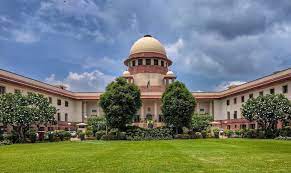Criminal Procedure Code, 1973, Section 482 – Penal Code, 1860, Sections 420, 467, 468, and 471 Registration Act, 1908, Section 82 and 83 – Quashing of FIR – Transfer of certain land by A-1on the basis of forged a Power of Attorney – On the basis of an inquiry by authority both the documents i.e., the PoA and the sale deed stood cancelled – Further, on the basis of the communication dated 15th October, 2020 that of the District Deputy Registrar, FIR stood registered against seven accused persons including A-1, A-2 and A-3 – Vide impugned judgment the FIRs to have been quashed on the counts:-(a) The original owner had already initiated civil proceedings;(b) No act of “criminality” can be said to be “made out”;(c) Initiation of criminal prosecution would amount to abuse of the process of Court (“perhaps meant as law”);(d) The alleged action “appears” to be “a civil wrong” in relation to which, “with respect to the same cause of action” the title suit is pending – Held that the premise on which the Court proceeded in quashing the FIR is on the wrong assumption, interpretation, and application of the law – Held that Section 82 and 83 of the Registration Act, 1908,empowers the Inspector General; the Registrar; or the Sub-Registrar, in whose territories, district, or sub-district, the offence stands committed to commence prosecution – Communication dated 15th October, 2020 resulting in registration of the FIR was that of a competent authority i.e., the Sub-Registrar of the concerned district -Such a power is the result of an action only in reference to and in connection with the Act and not the general provisions of IPC in relation to other penal provisions for which the FIR actually stood registered – FIR against which the petition under Section 482 Cr.P.C. had been preferred were offences contained only in the IPC – In the impugned order discussion is conspicuously absent as to how the aspect of “criminality” is not present –While exercising such inherent powers what is required to be examined is only the prima facie existence of the offence sought to be quashed -The Court’s observation that because there is no order of the Inspector General, “in spite of that this FIR has been lodged by the District Sub-Registrar, Giridih, which is against Section 83 of the Registration Act, 1908” as a prosecution may be lodged by or with the permission of the Sub-Registrar in whose territory the offence has been committed – For both the above reasons that the exercise of power under Section 482Cr.P.C., in the attending facts and circumstances, was unjustified and entirely unsustainable – Impugned judgment and order liable to be set aside. (Para 10 to 13)
SUPREME COURT OF INDIA
2024 STPL(Web) 102 SC
[2024 INSC 116]
Navin Kumar Rai Vs. Surendra Singh And Ors. Etc. Etc.
Criminal appeal nos. 890-891 of 2024 (Arising out of Special Leave Petition(Crl.)Nos.5531-32 of 2022)-Decided on 14-2-2024
https://stpllaw.in/wp-content/uploads/2024/04/2024-STPLWeb-102-SC.pdf







